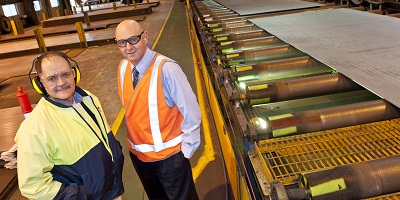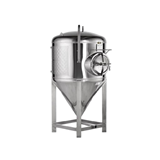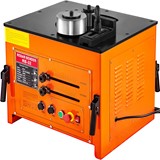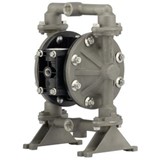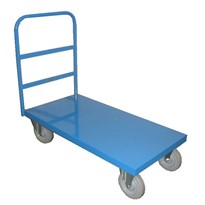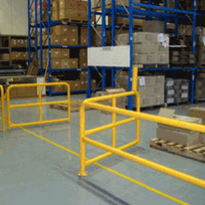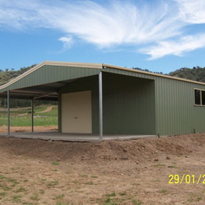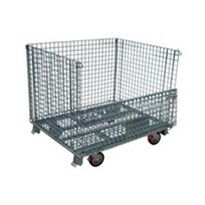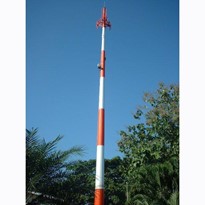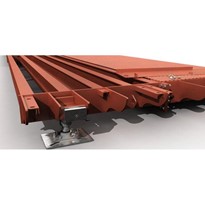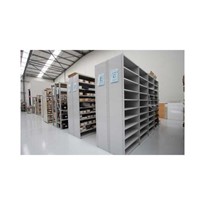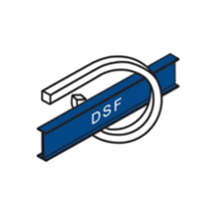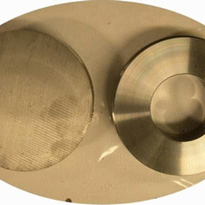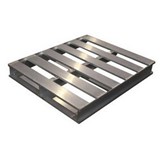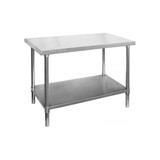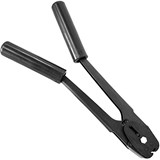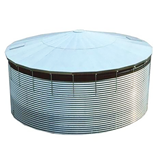Bisalloy operates a steel heat treatment line that produces quench and tempered (Q & T) steel plate for specialised uses where strength and durability are paramount. It is Australia's only producer of high-tensile, abrasion-resistant steel plate.
Bisalloy's Wollongong manufacturing base is the only stand-alone plant of its type in the world, as other heat treatment lines are part of integrated steel plants. This allows Bisalloy to take a highly specialised approach to the grades of steel it produces.
Around 70 per cent of the company's production goes to the resources industry, which needs super-tough wear-resistant steel for a range of uses from the trays of the giant Caterpillar dump trucks used at open cut mines to the teeth of ore crushers.
Bisalloy also makes light weight, high strength steel for the construction industry and for large storage tanks and road tankers.
The company's steel also plays an important role in protecting Australian Defence Forces servicemen and women, producing hardened steel for Australia's protected Infantry Mobility Vehicle (IMF) the Bushmaster. Bisalloy sales and marketing manager, Michael Sampson, says the steel is designed to withstand a variety of threats from mine blasts and small arms fire.
Since 1993 Bisalloy has produced over 3500 tonnes of steel for the Bushmaster program, and the company is Australia's sole manufacturer of high-hardness steel plate products for military applications.
Bisalloy's internationally recognised armour capability began in 1988 with an order for hull plates for the local construction of two FFG 7 guided missile frigates.
It developed HY 80 steel plates in cooperation with (then) BHP Port Kembla and the Defence Science and Technology Organisation (DSTO) to a US specification that significantly outperformed the equivalent US-manufactured steel plate.
Australia's four US-built FFG 7 frigates were subsequently retrofitted with the HY 80 plate. Bisalloy produced a total of approximately 1000 tonnes of steel for the FFG program. It went on to supply the Collins Class submarine program with more than 8000 tonnes of hardened steel of excellent low-temperature impact properties — also developed with BHP and the DSTO.
Governments in the US, India, the Middle East and Asia have since qualified Bisalloy's armour plate for use by their militaries and the company's (military) exports now far exceed domestic orders. Bisalloy is also an invitee on international working groups and panels defining standards for the next generation of armour applications.
Bisalloy chief financial officer David MacLaughlin says while defence industries are a relatively small part of the business, the company is proud to play a role in helping to protect Australian defence personnel.
Bisalloy can produce around 65,000 tonnes of tempered steel at its highly automated plant in the Wollongong suburb of Unanderra. It uses a process called quench and tempering, where steel plate is heated to the required temperature in a furnace capable of reaching around 900°C.
The heated steel is then quenched — or cooled — using high pressure jets of water, before being sand blasted and roller pressed to give it the required finish.
"It is a very precise process," MacLaughlin said.
"The steel's hardness, ability to bend (important in uses such as the manufacture of large tanks) and the ability to be welded depends on everything being spot on. If we are a couple of degrees out in the furnace, the finished product won't have the capabilities required of it."
MacLaughlin said the company invests millions of dollars in upgrading plant and equipment each year to make sure it remains at the forefront of technology.
Bisalloy was established in 1980 in the Wollongong suburb of Unanderra as Bunge Industrial Steels (the BIS in Bisalloy), close to the BHP (now BlueScope) Steelworks at Port Kembla which has traditionally been its major supplier of the steel plate.
"It made sense to be located just a few kilometres from Australia's biggest Steelworks," MacLaughlin said.
And while Bisalloy now sources steel plate from overseas as well as from BlueScope, MacLaughlin said it continues to make sense to be located in Wollongong.
"This is a steel community where people understand steel," he said.
"The transport companies, for example, understand how to transport steel and there are all kinds of support services and skills available when you need them.
"We also have a highly skilled and stable workforce. Our process is highly specialised so our knowledge and skills base is very important."
Bisalloy is about to export that knowledge to China, where it is establishing a joint venture with the Jinan Iron and Steel group to produce its hardened steels for the Chinese market.


